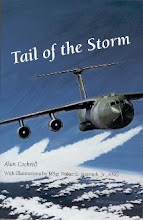Unless you're living in a snow cave in Antarctica you know about the incident last week in which pilots at another airline didn't respond to radio transmissions and overflew their destination by 168 miles. Now I can hardly pass by a group of passengers without someone asking, “What is it you guys do while the plane is cruising?”
This is not surprising because the "passengers" in the cockpit on the errant flight admitted to being in a heated conversation about company matters for over an hour and completely forgot to do their job. Air Traffic Control finally got their attention just as a flight of F-16s was taxing out to go after them—with live missiles, I suspect.
Autopilots are wonderful inventions that save lives by allowing pilots to multi-task during high workload situations and to relax during long high cruise segments. Programmed correctly, the autopilot and its associated computers (most large jets have three such units) knows when it's time to reduce power and descend. But it won't do that unless a pilot pushes a button to permit it to do so. On the 757/767s I fly, all it will do is put up a tiny message that says, RESET MCP ALTITUDE. That, by far, is not the only way you know it's time to descend, but it's the only cue you get from George (that's what the old timers called the autopilot). Those bums who FUBARed missed all the cues.
So, back to the question. My son Brad, asked a good one,
“Do you read books, throw darts...what?” Here's the official answer: We mind the store.
Every five minutes or so, the radio barks orders at us to change frequencies and occasionally altitude, course and airspeed. We monitor the fuel burn and keep a log to make sure we don't have excessive consumption that might indicate a leak or other trouble. We monitor the navigation systems to make sure we stay on course. We constantly study the weather along the route and at the destination. If we observe conditions not forecast—a “wind bust” for example—we send in a report. We send maintenance reports on breakages and malfunctions. We download paperwork for the next flight, study it, make amendments if necessary, and send back an acceptance, or (on rare occasions) a refusal.
What else? Crew meals take some time—I'm a slow eater.
And, sometimes we open a manual and review stuff about the plane or the operation that's gotten fuzzy.
My company regards the airspace below 18,000 feet to be “sterile cockpit” country. Since my company has placed that rule in our operations manual, the FAA considers it theirs also. During sterile cockpit we can only discuss matters relating to the task at hand and perform only actions related to flight. That's why I don't take photos of landings. (One of our pilots did that two years ago and posted it to her website, and was summarily fired.) And, the flight attendants are forbidden to call us below 18,000 unless they have an emergency.
Above 18,000 feet there is no prohibition on conversational topics. The captain usually sets the tone. I allow my first officers to vent, but I discourage lengthy, unending tirades.
They are usually quick to see that I like to talk about airplanes, boats, dogs and certain sports. It would be highly unusual to fly with someone who didn't want to discuss in depth one of those compelling subjects.
So, there you have it. That's what we do. Understand that the newspaper you see tucked in my bag's outer pocket is for the layover. And don't assume the round disc-like bulge in my travel bag is a dart board.
I was going to tell you about the message I sent to another planet, but that'll have to wait. Oh, yeah, I forgot. We send messages to other planets too.
This is not surprising because the "passengers" in the cockpit on the errant flight admitted to being in a heated conversation about company matters for over an hour and completely forgot to do their job. Air Traffic Control finally got their attention just as a flight of F-16s was taxing out to go after them—with live missiles, I suspect.
Autopilots are wonderful inventions that save lives by allowing pilots to multi-task during high workload situations and to relax during long high cruise segments. Programmed correctly, the autopilot and its associated computers (most large jets have three such units) knows when it's time to reduce power and descend. But it won't do that unless a pilot pushes a button to permit it to do so. On the 757/767s I fly, all it will do is put up a tiny message that says, RESET MCP ALTITUDE. That, by far, is not the only way you know it's time to descend, but it's the only cue you get from George (that's what the old timers called the autopilot). Those bums who FUBARed missed all the cues.
So, back to the question. My son Brad, asked a good one,
“Do you read books, throw darts...what?” Here's the official answer: We mind the store.
Every five minutes or so, the radio barks orders at us to change frequencies and occasionally altitude, course and airspeed. We monitor the fuel burn and keep a log to make sure we don't have excessive consumption that might indicate a leak or other trouble. We monitor the navigation systems to make sure we stay on course. We constantly study the weather along the route and at the destination. If we observe conditions not forecast—a “wind bust” for example—we send in a report. We send maintenance reports on breakages and malfunctions. We download paperwork for the next flight, study it, make amendments if necessary, and send back an acceptance, or (on rare occasions) a refusal.
What else? Crew meals take some time—I'm a slow eater.
And, sometimes we open a manual and review stuff about the plane or the operation that's gotten fuzzy.
My company regards the airspace below 18,000 feet to be “sterile cockpit” country. Since my company has placed that rule in our operations manual, the FAA considers it theirs also. During sterile cockpit we can only discuss matters relating to the task at hand and perform only actions related to flight. That's why I don't take photos of landings. (One of our pilots did that two years ago and posted it to her website, and was summarily fired.) And, the flight attendants are forbidden to call us below 18,000 unless they have an emergency.
Above 18,000 feet there is no prohibition on conversational topics. The captain usually sets the tone. I allow my first officers to vent, but I discourage lengthy, unending tirades.
They are usually quick to see that I like to talk about airplanes, boats, dogs and certain sports. It would be highly unusual to fly with someone who didn't want to discuss in depth one of those compelling subjects.
So, there you have it. That's what we do. Understand that the newspaper you see tucked in my bag's outer pocket is for the layover. And don't assume the round disc-like bulge in my travel bag is a dart board.
I was going to tell you about the message I sent to another planet, but that'll have to wait. Oh, yeah, I forgot. We send messages to other planets too.




Eau Claire is not that exciting of a town. They should have flown all the way to CWA.
ReplyDeleteI just don't understand why they didn't respond to their own dispatch and ATC? Leaving Co and then not hearing the handover? Must have been one heck of a conversation.
Could have been asleep and the conversation is a cover story.
ReplyDeleteAs I understand things at this moment, the CVR is an older model which resets itself after recording only 30 minutes. So, whatever story is being directed by the cockpit crew is the story the "company" and FAA will have to dissect...
ReplyDeleteA girlfriend thought if it was a male/ female crew then, maybe other things may have been occurring...Interesting comment by this girlfriend of mine..
Captain Cockrell,
ReplyDeleteThe latest MSP newspaper reports indicate the crew now claim they were neither asleep NOR arguing...?
I would think from the crews' perspective they would prefer to confess to falling asleep, blame it on fatigue, apologize, and try to regroup from there. Initial crew comments reported in paper indicated they "lost situational awareness" and consequently overflew destination. Okay, I lose situational awareness when I'm asleep also. I just can't imagine experienced, professional pilots at a major US carrier suffering such a lapse while awake, sober, and well. Will be interesting to see how this plays out!
Bob
Hi Alan. One thing I do not understand is why the flight attendants didn't ring the cockpit to find out what was going on when surely they realized they were one hour behind schedule and still at cruising altitude. I imagine that some of the passengers with connecting flights or a tight schedule would have started worrying at that stage and asked the flight attendants for an ETA, don't you think?
ReplyDeleteI'm forwarding this to some other curious chaps who thought you might be playing dice or mumbly peg up there!
ReplyDeleteNot asleep? Not arguing? Bad picture.......
ReplyDeleteI thought I had heard that that these guys had their laptops out in the cockpit and were busy doing something with them. Watching a movie maybe. playing video games. A flight simulator perhaps. They probably couldnt get past level one on that game. Did this airplane have in-air wifi? One thing is for sure. No doubt one was a Auburn grad and the other was a Tennessee grad.
ReplyDeleteI disagree. One was teaching the other how to use Delta's pilot schedule bid program, PBS, the same one we use (Delta, remember, just acquired Nortwest). It's a complicated program and I can see how they can become engrossed in it, though that's not an excuse. I would bet that these were both competent pilots who let their guard down and ended up screwing the pooch. I'm sorry for them.
ReplyDelete